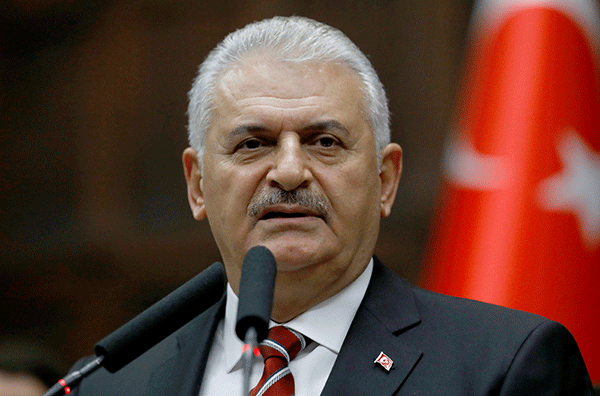Turkey to hold constitutional referendum in early summer
 |
|
Turkey's Prime Minister Binali Yildirim addresses members of parliament from his ruling AK Party (AKP) during a meeting at the Turkish parliament in Ankara, Turkey, November 8, 2016. [Photo/Agencies] |
ANKARA - Turkey will likely hold a constitutional referendum in early summer 2017, Turkish Prime Minister Binali Yildirim said Thursday.
"A referendum is expected within 60 days after the parliament concludes the negotiations," Yildirim told a press conference after a meeting with the leader of opposition Nationalist Movement Party (MHP) Devlet Bahceli in Ankara.
The ruling Justice and Development Party (AKP) and MHP have finalized negotiations on proposed amendments to the constitution, which include changing the current parliamentary system to a presidential system, the state-run Anadolu Agency reported.
The proposed draft constitution will be submitted to the parliament next week, Yildirim, who is also the head of AKP, said.
After the draft is presented to the parliament, a referendum will be held for the public to make the final decision if a total of 330 votes or higher is reached.
The parliament is expected to debate the amendments early next year and the referendum may be held in April, local Daily Sabah said.
According to the Turkish constitution, constitutional changes can be directly passed only if it is approved by two-thirds of the deputies in the parliament, which corresponds to 367 of the 550 parliamentarians.
The AKP, with 316 seats, and the MHP, with 40, both back the bill.
A committee within the AKP completed its work last month on a draft constitution that includes items for a presidential system.
According to the new proposed draft constitution, the president will be able to continue with a party affiliation, which is one of the most significant changes to the presidential system, while in the current constitution the president is not allowed to continue their party affiliation and should have a non-partisan stance.
The government has long sought to replace the current parliamentary system with a presidential one, saying there are flaws in the setup, which also holds back Turkey's development.




















